Chercheuses et Chercheurs
|
|
Gregory Kennedy est professeur agrégé en histoire et directeur scientifique de l'Institut d'études acadiennes de l'Université de Moncton. Son premier ouvrage, Something of a Peasant Paradise? Comparing Rural Societies in Acadie and the Loudunais, 1604-1755 (McGill-Queen's University Press, 2014) a remporté le prix CLIO de la Société historique du Canada pour le meilleur ouvrage scientifique consacré à l'histoire de la région du Canada atlantique. Il a obtenu son doctorat de York University à Toronto en 2008. Il est spécialiste de l'histoire coloniale du Canada et de l'Acadie. |
 |
Dr.Elizabeth Mancke is Professor of History and Canada Research Chair in Atlantic Canada Studies at the University of New Brunswick. Her recent publications include Violence, Order, and Unrest: A History of British North America, 1749-1876, co-edited with Jerry Bannister, Denis McKim, Scott W. See (UTP, 2019) and “The Age of Constitutionalism and the New Political History,” in the Canadian Historical Review (2019). Her current CRC project focuses on the regulation of marine and terrestrial commons in Atlantic Canada, where for the last half millennium competing and overlapping jurisdictional authorities, from European empires to Indigenous confederacies, have competed and cooperated by turns in defining access to the region’s natural resources. |
 |
Lee Windsor is an Associate Professor of History and holds the Fredrik S. Eaton Chair in Canadian Army Studies at The University of New Brunswick’s Gregg Centre for the Study of War and Society. He is a Canadian Armed Forces veteran and serves on the Commemoration Advisory Group to the Minister of Veterans Affairs. Publications include Kandahar Tour: Turning Point in Canada's Afghan Mission, Steel Cavalry: The 8th New Brunswick Hussars in the Italian Campaign, The Royal Canadian Infantry Corps in Afghanistan report, and Loyal Gunners: 3rd Field Regiment (The Loyal Company) and the History of New Brunswick’s Artillery, 1893-2012. |
 |
Maurice Basque est historien et conseiller scientifique à l'Institut d'études acadiennes de l'Université de Moncton dont il a été le premier directeur de 2007 à 2010. Spécialiste de l'histoire de l'Acadie coloniale et de l'histoire de la culture politique acadienne, il a publié un livre sur l’histoire de la profession enseignante acadienne au Nouveau-Brunswick qui a reçu le prix France-Acadie en 1995. Maurice Basque a été président de l'Association d'études canadiennes et du Conseil consultatif de l'Ordre du Nouveau-Brunswick. Le gouvernement de la République française l'a fait Chevalier des Palmes académiques en 2002, Chevalier des Arts et des Lettres en 2003. En 2019, il fut promu au titre d'Officier des Palmes académiques. |
 |
Dr. Blake Brown is a Professor in the Department of History and Atlantic Canada Studies at Saint Mary’s University. He is the author of A Trying Question: The Jury in Nineteenth-Century Canada (University of Toronto Press, 2009), Arming and Disarming: A History of Gun Control in Canada (University of Toronto Press, 2012) and (with Philip Girard and Jim Phillips) A History of Law in Canada, Volume 1: Beginnings to 1866 (University of Toronto Press, 2018). |
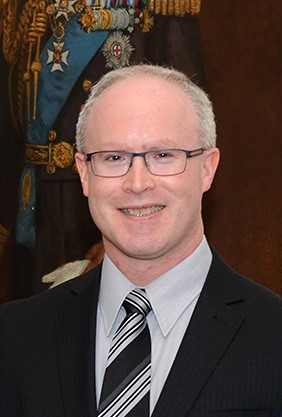 |
David Campbell earned his MA in Near Eastern studies at the University of Toronto and his PhD in history at the University of Calgary. He teaches history at Saint Mary’s University and Mount Saint Vincent University. His published articles and chapters in edited collections address Canadian experiences during the First World War. These include such topics as recruitment and training; discipline and punishment; intelligence and leadership; and military operations at the Somme and Vimy Ridge. His book, It Can’t Last Forever: The 19th Battalion and the Canadian Corps in the First World War, was published by Wilfrid Laurier University Press in 2017. |
 |
Cynthia Wallace-Casey is an adjunct Professor in the Faculty of Education, University of Ottawa. Her doctoral dissertation (UNB) focussed on community-based learning in history museums, and was recognised with a Canadian Association of Foundations in Education Outstanding Dissertation Award in 2016. Professor Wallace-Casey has completed a SSHRC postdoctoral research fellowship at the University of Ottawa, and is currently involved in several SSHRC funded research initiatives, including “Remembering the First World War” and “Tangible pasts, national narratives, and difficult knowledge: Linking history education with historical thinking in museums (a Dutch case study)”. Her research interests include historical thinking, national narratives, difficult histories, and Reconciliation. She has more than 20 years experience in the field of heritage education. |
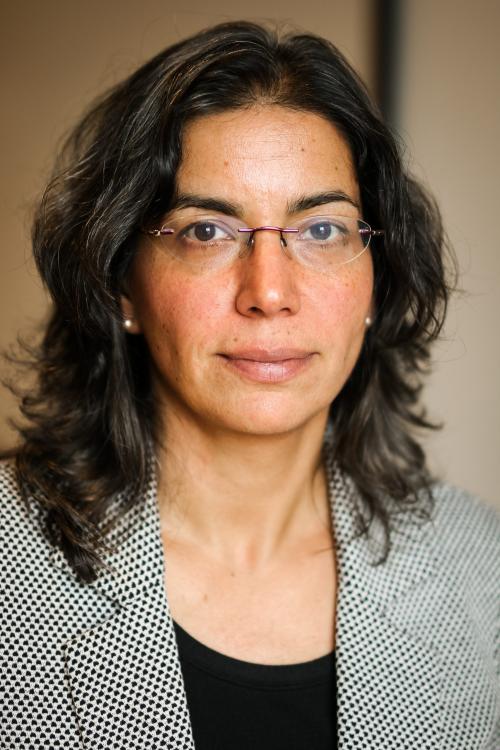 |
Maya Eichler holds the Canada Research Chair in Social Innovation and Community Engagement and is an associate professor of Political and Canadian Studies and Women’s Studies at Mount Saint Vincent University. She is also the director of the Centre for Social Innovation and Community Engagement in Military Affairs at Mount Saint Vincent University. Her current research focuses on gender and the armed forces, military sexual violence, military-to-civilian transitions, and community stories of war and peace. You can find more information about her work at www.msvu.ca/sicema and follow her on Twitter at @sicema_msvu |
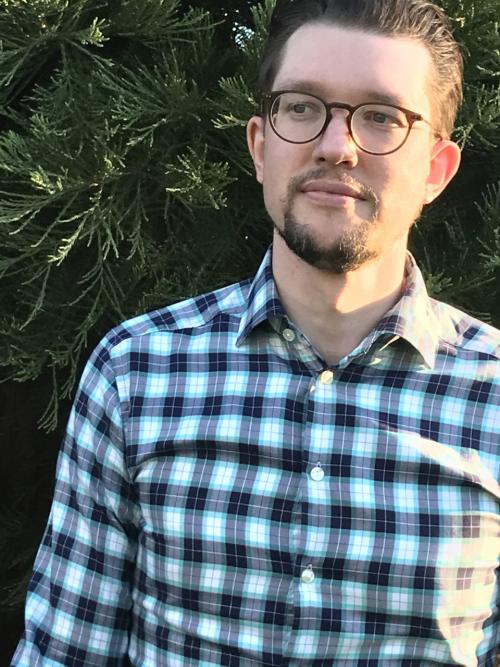 |
Colin Grittner specializes in questions of Canadian democracy, citizenship, and societal formation and has held SSHRC-funded postdoctoral fellowships at the University of British Columbia and the University of New Brunswick in Fredericton. He is co-editor of Reforming Senates (Routledge, 2019) and his work has appeared in the Canadian Historical Review, Histoire Sociale/Social History, and the Journal of the Canadian Historical Association. Colin is an Instructor in Canadian History at the University of British Columbia. |
 |
Nicolas Landry est professeur d’histoire retraité du campus de Shippagan de l’Université de Moncton. Il détient un baccalauréat et une maîtrise en histoire de l’Université de Moncton, ainsi qu’un doctorat en histoire à l’Université Laval. Il a œuvré à titre d’archiviste à l’Université Sainte-Anne de Pointe-de-l’Église en Nouvelle-Écosse et aux Archives nationales du Canada à Ottawa. Depuis plus d’une trentaine d’années, il s’intéresse à l’histoire des pêches au Canada atlantique, à l’histoire coloniale et à celle de l’éducation. |
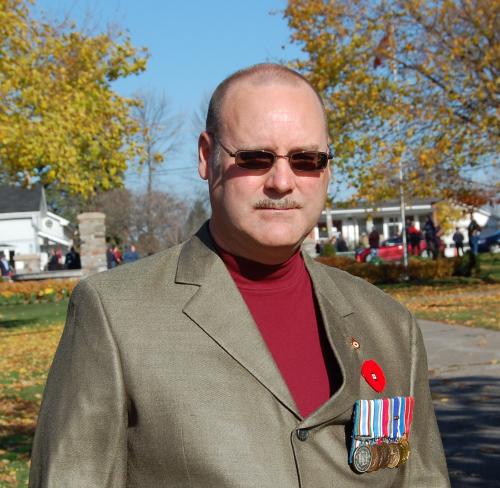 |
Captain (Retired) Curtis Mainville, a twenty-two-year veteran of the Canadian Forces, graduated from the University of New Brunswick with a Master of Arts (History) degree in 2012. His thesis, entitled “Communities at War”, forms the basis for his ongoing research into the social and military fabric of New Brunswick during the Great War. He is the author of Till the Boys Come (Goose Lane Editions, 2015) and architect of the New Brunswick Great War Project, which is dedicated to the study of the province’s wartime contribution. |
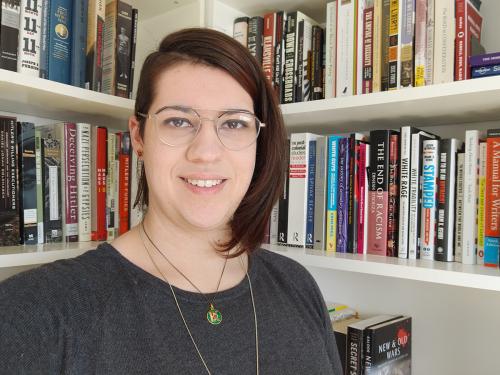 |
Katelyn Stieva is a PhD Candidate at the University of New Brunswick where she conducts her research through the Gregg Centre for the Study of War and Society. A member of a military family, Katelyn has always been fascinated with military history and heritage, and the relationship that exists between military and security forces and broader society. This interest led her to pursue a Masters degree in security and strategy studies at the University of Calgary before returning to her home on the East Coast. Her current research explores the legacies of military service within Black Canadian communities during the 20th century. |
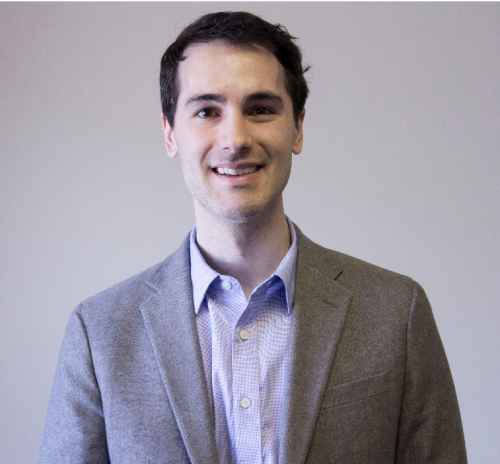 |
Philippe Volpé est professeur régulier d'histoire au campus d'Edmundston de l'Université de Moncton. Ses travaux portent sur l'histoire intellectuelle, des mouvements sociaux et du changement social en Acadie contemporaine des provinces maritimes. Il est notamment coauteur, avec le sociologue Julien Massicotte, de l'ouvrage Au temps de la «révolution acadienne»: les marxistes-léninistes en Acadie (2019). |
 |
J. Brent Wilson has worked at the Centre for Conflict Studies and Gregg Centre at UNB since 1989. He is Director of the New Brunswick Military Heritage Project and Editor of the Centre’s New Brunswick Military Heritage Book Series. His publications include Hurricane Pilot: The Wartime Letters of Warrant Officer Harry Gill, D.F.C., 1940-1943 (2007); Kandahar Tour: The Turning Point in Canada’s Afghan Mission (2008); Loyal Gunners: 3rd Field Artillery Regiment (The Loyal Company) and the History of New Brunswick Artillery, 1893 to 2012 (2016); and A Family of Brothers: Soldiers of the 26th New Brunswick Battalion in the Great War (2018). |
|
|
|
|
|
...







